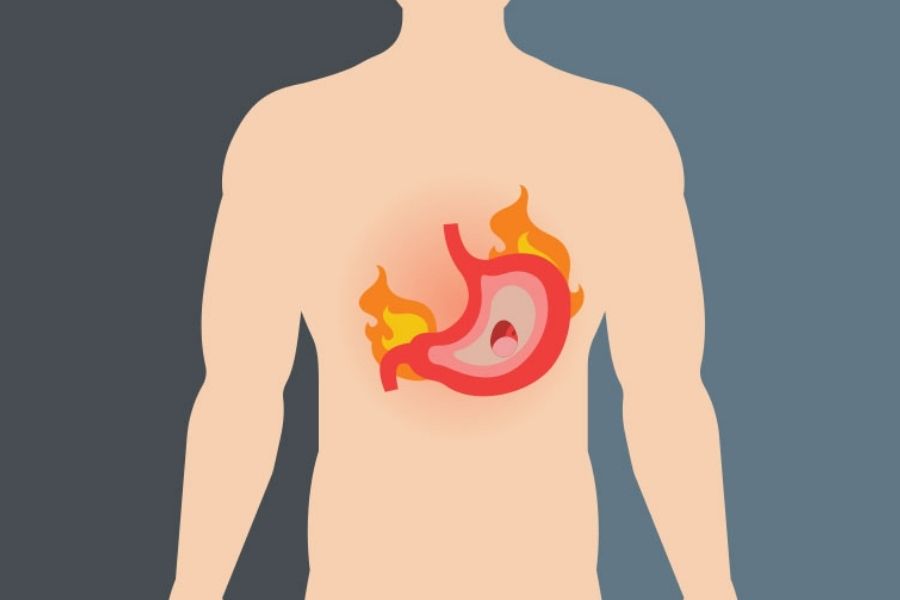Gastritis refers to stomach lining inflammation. It causes discomfort and is associated with indigestion, nausea, and vomiting. The stomach lining has an important job of making acid and enzymes that help break down food so our body can extract nutrients it needs. The lining also has a protective layer called the mucosa. But when the lining is inflamed, it makes less acid, enzyme, and mucus. It can lead to ulcers and stomach cancer.
People commonly think gastritis and ulcers are caused by spicy food and stress. They are not the cause, but they do make symptoms worse. Research has shown that bacteria called H. Pylori are often to blame. H. Pylori can have termites in your stomach. It spreads through contaminated water or food and is usually treated with antibiotics.
Types Of Gastritis

There are three types of gastritis.
- Acute gastritis is caused by an irritant or infection and can result in acute upset of the stomach. It is usually temporary.
- Chronic gastritis is a condition where the stomach lining is damaged long term due to infection by H. Pylori. It can also lead to anemia due to B12 deficiency. Dietary B12 is bound to other proteins, and its release is related to gastric PH status. Antacid drugs and modification of the intragastric PH are factors of malabsorption of vitamin B12.
- Erosive gastritis causes wearing away of the stomach lining. Its leading cause is non-steroidal anti-inflammatory drugs. These include aspirin and ibuprofen.
Causes Of Gastritis

- The bacterium called H. Pylori and non-steroidal anti-inflammatory drugs are the two leading causes of gastritis.
- Low stomach acid or hypochlorhydria causes gastritis symptoms like indigestion and pain. The stomach secretes hydrochloric acid to perform functions like breakdown and absorption of food and nutrients. Low stomach acid also leads to osteoporosis, weakness, fatigue, cramps, anemia, and other nutritional disorders.
- Sometimes, gastritis is an autoimmune condition in which the immune system mistakenly attacks the cells that line the stomach.
- H. Pylori gastritis can cause problems absorbing iron from food leading to iron deficiency anemia.
- Gastritis can cause problems with absorption of iron and vitamin B12, leading to iron deficiency anemia and pernicious anemia. Doctors may recommend iron, folic acid, vitamin B12 supplements to prevent pernicious anemia.
- When the stomach lining becomes irritated, a small number of acid escapes through the top opening at the stomach top and into the esophagus. This condition is known as acid reflux.
Medication For Gastritis

- Chronic gastrointestinal complaints are often treated with proton pump inhibitors, antibiotics, and other medications that offer temporary relief. Although these prescribed drugs can provide promising results, new research indicates the drug treatment often leads to further complications.
- Proton pump inhibitors extended use revealed a decrease in absorption of critical vitamins and minerals, gut dysbiosis, rebound stomach acid hypersecretion, increased reflux-like symptoms, and hypergastrinemia associated with increased stomach cancer risk.
How Can Proper Nutrition Improve Gastritis?

- Following a nutritious non-spicy diet can eliminate the symptoms of gastritis and acid reflux.
- Having smaller frequent, but healthy meals every two to four hours can also relieve gastric symptoms.
- Foods containing flavonoids like apples, celery, cranberries, onions, garlic may stop the growth of H. Pylori.
- Foods containing micronutrients that may help to heal the gut include fish, poultry, and eggs. These high protein foods contain zinc and amino acid L-glutamine. Meat broths such as chicken stock are excellent collagen sources, an essential protein within the gut lining.
- Add fermented drinks and foods to the diet like sauerkraut, kimchi, dosa batter prepared at home; kanji can help.
- Supplements that can help are multivitamins containing antioxidants, vitamin A, C, E, B vitamins, and trace minerals, such as magnesium, calcium, zinc, and selenium.
- Probiotics containing Lactobacillus acidophilus maintain a balance in the digestive system between good and bad bacteria, such as H. Pylori.
- Avoid fried, fatty foods, coffee, alcohol, chocolate, and anything spicy with red chili powder.
- Avoid soda and fizzy drinks as they are acidic and can be harsh on the stomach lining. A small amount is ok to drink but avoid filling your belly with the beverage.
- Avoiding long-term alcohol use, NSAIDs, coffee, and drugs like proton pump inhibitors may help hydrochloric acid production.
- Reducing stress through relaxation techniques, including yoga and meditation, can be helpful.
- Keeping a diary of the list of foods that make your symptoms worse can help take them out for 4-6 weeks and slowly reintroduce them.
Read Also: What Is Irritable Bowel Syndrome (IBS)?







